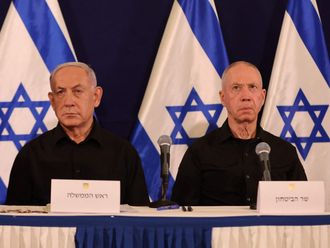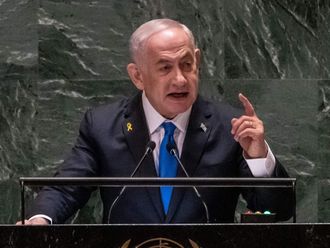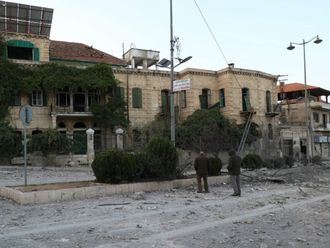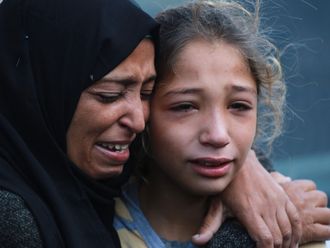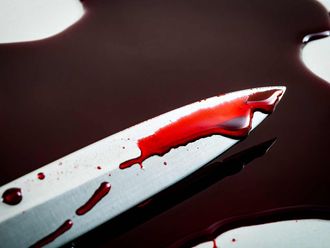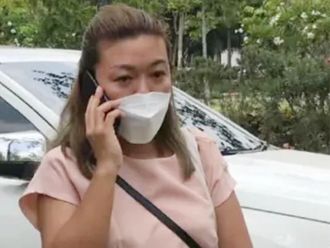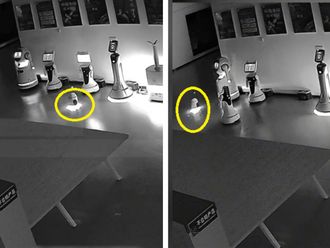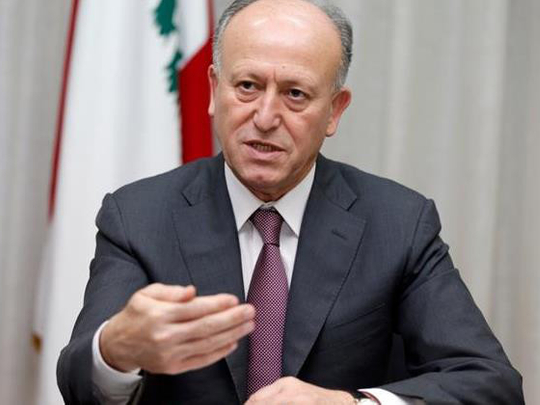
Beirut: In a surprise victory, Tripoli municipal poll results slated outgoing Minister of Justice Ashraf Rifi’s ‘Tripoli’s Choice’ list to bag 22 out of 24 seats, effectively rejecting the coalition of former Prime Minsiter Sa’ad Hariri, who has been traditionally popular in the northern city.
While grass-roots organisations like Beirut Madinati and Baalbek Madinati failed to secure majority seats (although making impressive strides), the Tripoli results usher in a new leadership wave in Northern Lebanon.
Dejected voters turned against the Future Movement in Northern Lebanon after established political leaders formed joint lists to crush the nascent threat.
The results show citizens are increasingly dissappointed with leaders who failed to translate words into actions.
The ‘For Tripoli’ list is backed by former prime ministers Sa’ad Hariri, Najeeb Mikati, Mohammad Safadi, as well as several local deputies, former minister Faisal Karami and an array of Islamist groups.
The hugely popular Rifi has unquestionably emerged as the new leader of Sunnis in Lebanon. Contrary to the timid stances of the establishment, Rifi’s bold approach was reflected in his victory speech when he called on Sa’ad to return to the legacy of his late father, Rafik Hariri.
Rafik Hariri was assassinated in 2004, but before that he was hugely popular, particularly for standing up to Syria, who had occupied Lebanon after the civil war ended.
During Lebanon’s municipal polls spread over four weeks various reports emerged over voter interference and ballot box violations.
Officially, however, Interior Minister Nouhad Al Mashnouq said that the polls were free of major incidents with voter turnout reaching 43.8 per cent in Koura, 54.4 per cent in Batroun, 57.2 per cent in Miniyyah-Dinniyyah, 61.6 per cent in Akkar, 36.6 per cent in Bsharri and 36.68 per cent in Zgharta. A total of 580,095 voters were registered in the North and 269,910 in Akkar, while 5,976 candidates ran for seats in 273 municipal councils and 1,553 candidates competed for 740 mayoral positions.
Equally stunning developments occurred elsewhere as the Lebanese Forces (LF) and Free Patriotic Movement (FPM) coalition, which aimed to muzzle the Future Movement deputy, Hadi Hbeish, in Qubayyat, for example, collapsed. This was a clear warning to both the LF and the FPM that coalitions of convenience were not what voters wanted.
Hbeish declared that his “sole reservation over the other electoral list in Qubayyat was that it was formed outside the town”, which may have motivated his backers to stick with him. The Lebanese Association for Democratic Elections (LADE), which monitored polling stations, confirmed that some voters cast their ballots and then handed over their IDs to the representatives of the ‘Qubayyat Decides’ list (backed by Hbeish, former deputy Mikhael Al Daher, and the Phalange Party) in a clear violation of existing regulations.
In the event, such contraventions were not unusual as LADE accused the ‘Justice and Equality’ list in Babnin (Akkar)—backed by leading families led by the Al Masris — of buying votes “for $50 (Dh183.65), LBP100,000 or mobile phone recharge cards at the Rafiq Hariri High School.
Social media rumours alleged that bribes in Tripoli hovered between $200 and $1,000 while in Batroun, a full list fetched $5,000.
Batroun witnessed particularly ugly developments, as a major battle between a list backed by Telecommunications Minister Butros Harb and another supported by the FPM’s Jibran Bassil (supported by the LF), duked it out. Harb’s list defeated the LF-FPM coalitions. Batroun remained a sore point in Bassil’s constellation since he and his backers regularly lost there, which earned him the distinction of being one of the few ministers never elected to office.
The sole areas that witnessed successful coalition victories were in Zgharta, where an accord between former rivals — the Marada Movement of Sulaiman Franjieh and the Independence Movement of Michel Mouawad — won; and Bsharri, where a list backed by LF deputy Sitrida Geagea prevailed.
Northern Lebanon and Akkar voters, like Lebanese citizens in every other governorate, rejected shifting alliances in clear warnings to establishment parties that most potentially faced defeat in the 2017 parliamentary elections.


